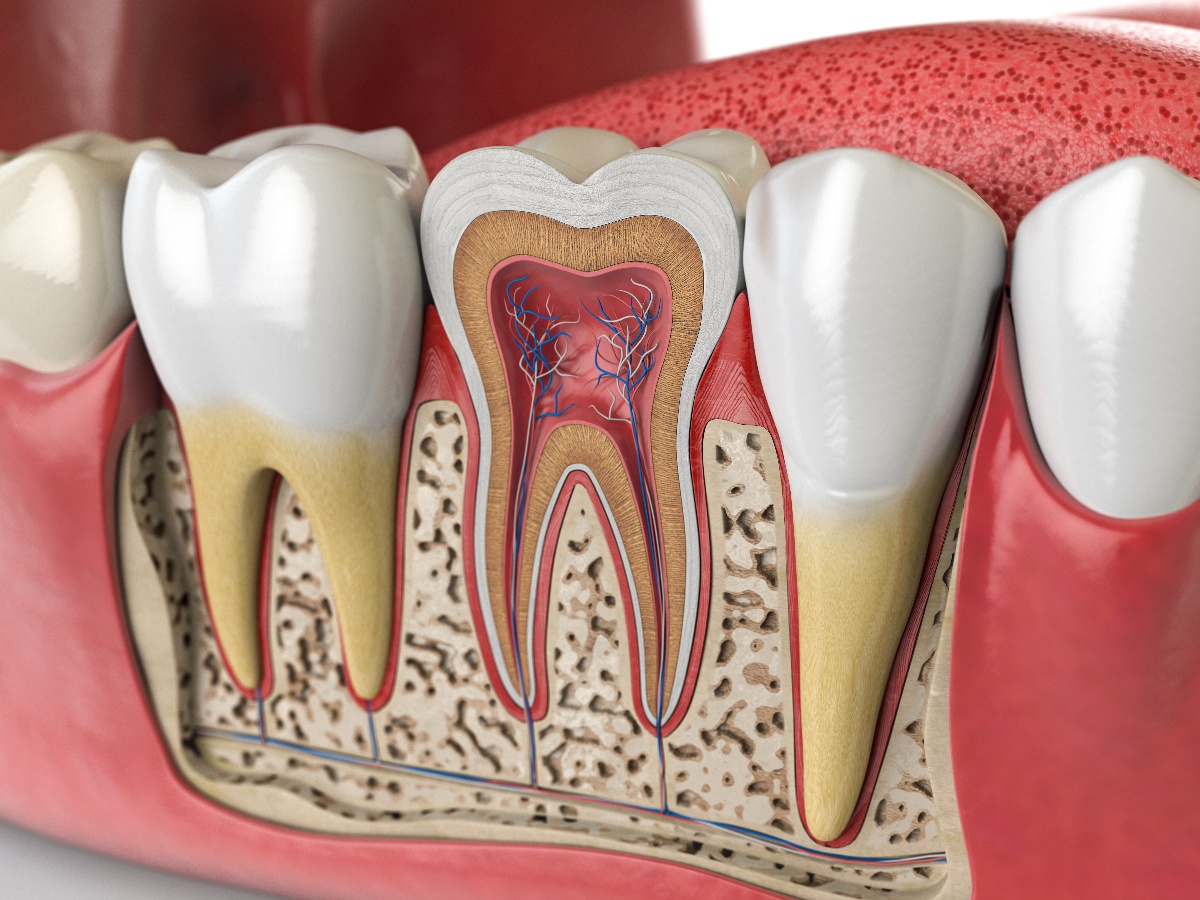Tooth pain can occur when you least expect it and is a leading cause of dental and emergency room visits. However, you might also need clarification about whether you have a dental emergency requiring immediate attention. Some of this confusion can be cleared by understanding the complex anatomy of tooth pain and examining the common causes of a toothache.
The Anatomy of Tooth Pain
Tooth pain is a discomfort that many of us experience at some point in our lives. Understanding the anatomy of a tooth and its surrounding structures can help you know if you are experiencing a dental emergency. Your tooth is more than just its visible part, the crown; it also includes roots, enamel, dentin, pulp, and surrounding structures like gums and jawbone. Each part plays a role in the kind of pain you may experience.
- Enamel. This is the outermost layer that protects your teeth. Although it is the hardest substance in your body and contains no nerves, it can erode or chip to expose your tooth's inner and more sensitive parts.
- Dentin. Located beneath the enamel, this layer has tubules connecting to the nerves in the center of your teeth. You can experience pain that often occurs when dentin is exposed due to tooth decay or enamel wear.
- Pulp. This innermost portion houses the tooth's nerve and blood vessels. Inflammation or infection here often leads to intense, throbbing pain and swelling.
- Gums. Infections like gingivitis or periodontitis can lead to gum pain, which often feels like a continuous, dull ache that mimics tooth pain.
- Jawbone. Issues with the jawbone, often due to inflammation, infection, or trauma, can cause referred pain to your teeth.
Why People Often Ignore Toothaches
Toothaches are a common complaint, yet many people delay seeking treatment until the situation worsens. Although not all tooth pain requires emergency care, completely ignoring any dental symptom is not recommended. Common reasons given for ignoring a toothache include:
Fear of Dentists. Although dental anxiety can be managed with modern dental sedation, it can still prevent some people from seeking dental treatment.
Financial Constraints. The perceived high cost of dental treatment is a barrier for many, especially those without dental insurance.
Lack of Time. Busy schedules can make it challenging to prioritize dental health, especially when the pain is bearable.
Underestimation. Some individuals underestimate the severity of their toothaches, considering them temporary or not severe enough to warrant professional attention.
Lack of Awareness. Often, people are unaware that a persistent toothache could indicate a more serious underlying issue requiring immediate attention.
While you may be tempted to ignore your toothache for one of these reasons or another, Palmetto Dental Arts recommends seeking professional dental care at the first signs of discomfort. Prompt action can prevent more severe problems and ultimately save time, money, and, most importantly, your health.
Common Causes of a Toothache
The underlying cause of dental pain can vary significantly. Recognizing the potential reasons for your tooth pain can be the first step in deciding if you need emergency dental care. While only a qualified dental professional can accurately diagnose and treat dental issues, understanding some common causes can help you know when to seek help.
- Tooth decay. Cavities can expose your tooth’s dentin and cause sensitivity or pain.
- Gum disease. Inflammation or infection in your gums can result in pain that may cause some toothache symptoms.
- Abscess teeth. An infected dental pulp can cause intense pain and swelling that may result in systemic symptoms such as fever and malaise.
- Impacted teeth. A tooth that lacks adequate space to erupt can cause surrounding teeth and gums to ache.
- Cracked tooth. Even a microscopic crack can cause mild to severe toothache.
- Bruxism. Teeth grinding places enormous pressure on teeth and can cause tooth, jaw, and muscle pain.
- Sinus issues. Sometimes, a sinus infection can cause discomfort that feels like a toothache.
- Improper alignment. Misaligned teeth can cause stress on the jaw and surrounding teeth, leading to intermittent or constant pain.
- Trauma. A blow to the face can cause one or more teeth to break, become dislodged, or be knocked out. Frequently, this type of trauma results in tooth and jaw pain.
Signs and Symptoms of a Dental Emergency
Dental emergencies are situations that require prompt attention to mitigate a severe toothache, stop uncontrolled bleeding, or prevent the occurrence of a more serious condition. Knowing what constitutes a dental emergency can help you take appropriate action swiftly. It can also make the difference between saving and losing a tooth or even preventing a more serious health complication.
Here are some signs and symptoms that warrant immediate attention:
- Severe pain. A constant, throbbing, and severe toothache that doesn’t respond to over-the-counter pain medication is a clear sign of a dental emergency.
- Swelling. Swelling can indicate an infection, which needs prompt treatment to prevent it from spreading. Your dentist should evaluate any swelling affecting your eye, airway, or jaw as soon as possible to avoid a medical emergency.
- Loose or displaced tooth. A tooth that has received trauma and is loose, displaced, or knocked out requires immediate evaluation and treatment.
- Pus or abscess. The presence of pus signifies infection and should be treated as soon as possible to prevent a more severe problem.
- Bleeding. Excessive or prolonged bleeding from the gums surrounding a tooth should be addressed immediately.
- Fever and fatigue. Fever accompanying a toothache could signify a spreading infection, requiring immediate treatment.
- Broken, chipped, or fractured teeth. If you break a tooth that results in sharp fragments that could cause further injury, immediate care is needed.
- Difficulty breathing or swallowing. This can occur with infected wisdom teeth or an abscessed tooth and be a sign of a severe infection that could be life-threatening.
- Numbness. A lack of sensation in the tooth or surrounding area could be a sign of a severe infection that has spread to the nerves.
- Spontaneous toothache. Pain that occurs spontaneously, without any apparent cause, especially if intense, could indicate a serious issue.
- Intense sensitivity to temperature. While mild, intermittent sensitivity is common, if it reaches an intense level suddenly, it may be a symptom of a cracked tooth or severe pulpal inflammation.
Schedule an Appointment
You can trust the dental healthcare providers at Palmetto Dental Arts for all your general, cosmetic, and emergency dental needs. Call us or contact us online.





